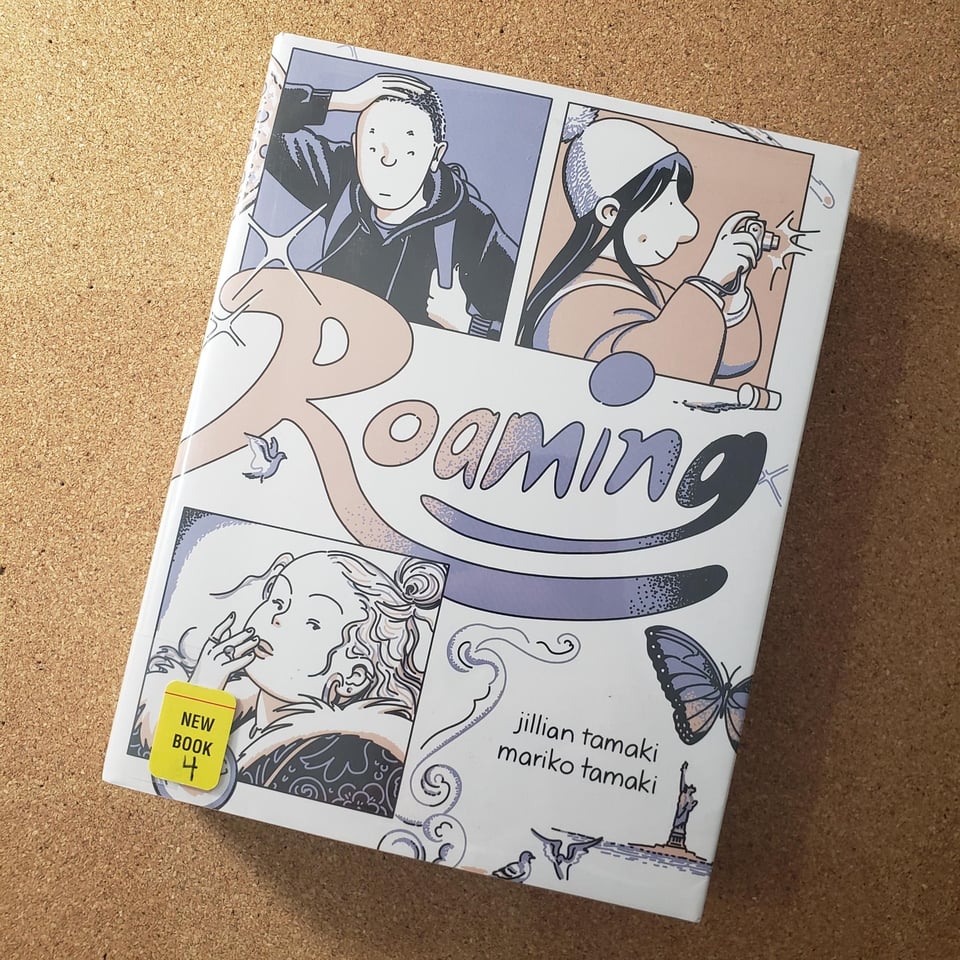Review: Roaming (2023)

The “young people take a trip to NYC and learn something about themselves” story must be as old as the city itself. As an unabashed entry in the genre, Roaming – a lovely and surprisingly chonky new graphic novel from the Tamakis – doesn’t try to break new narrative ground, and it doesn’t really need to. I’ve seen other reviews critique the comic, which is over 400 pages, for being too long. Roaming does unfold at a stubbornly languid pace. But its meandering structure really gives the characters space to develop, talk, bond, fight, fuck, hurt each other, and maybe reconcile.

Our three main characters include two old friends, Dani and Zoe. But it’s Fiona, a college classmate of Dani’s who tags along, who dominates the story. Over the course of the book, Fiona drives an emotional wedge between Dani and Zoe, who both admire her toughness and aura of cool. The conflict stems from a messy, whirlwind romance between Fiona and Zoe that’s both engaging and discomforting – mostly because of the way it sidelines Dani. In one particularly striking sequence, Fiona and Zoe get high and hook up in their shared room, deluding themselves into thinking that Dani won’t notice. (She does. Obviously.)

While it would be easy to label Fiona “toxic” – and certainly her callousness would deserve censure in real life – her character is genuinely compelling. She’s deeply unhappy and uses cynicism to pretend she isn’t, even though it hurts the people around her. Zoe, who is sorting out her own sexuality, gets caught up in the desire of a new, unknown relationship and nearly breaks an old friendship in the process. And Dani quietly deals with her emotional isolation by throwing herself into “being a tourist,” even though she really just wants to share experiences with her friends.

Jillian Tamaki’s linework is staggeringly good. For a subtle, emotionally driven story, there’s so much motion and energy in her drawing. Even the backgrounds and spaces between panels are sometimes as expressive as the characters’ faces in their own way. The book also isn’t afraid to play around visually, like in the aforementioned “getting high and fucking” scene, which expands into surreal abstraction territory. But the art never draws attention to itself for its own sake; even at its most experimental, the focus is still on using the comics form to show us something new or interesting about Zoe, Dani, and Fiona.

Follow my bookstagram: @panthercitybooks